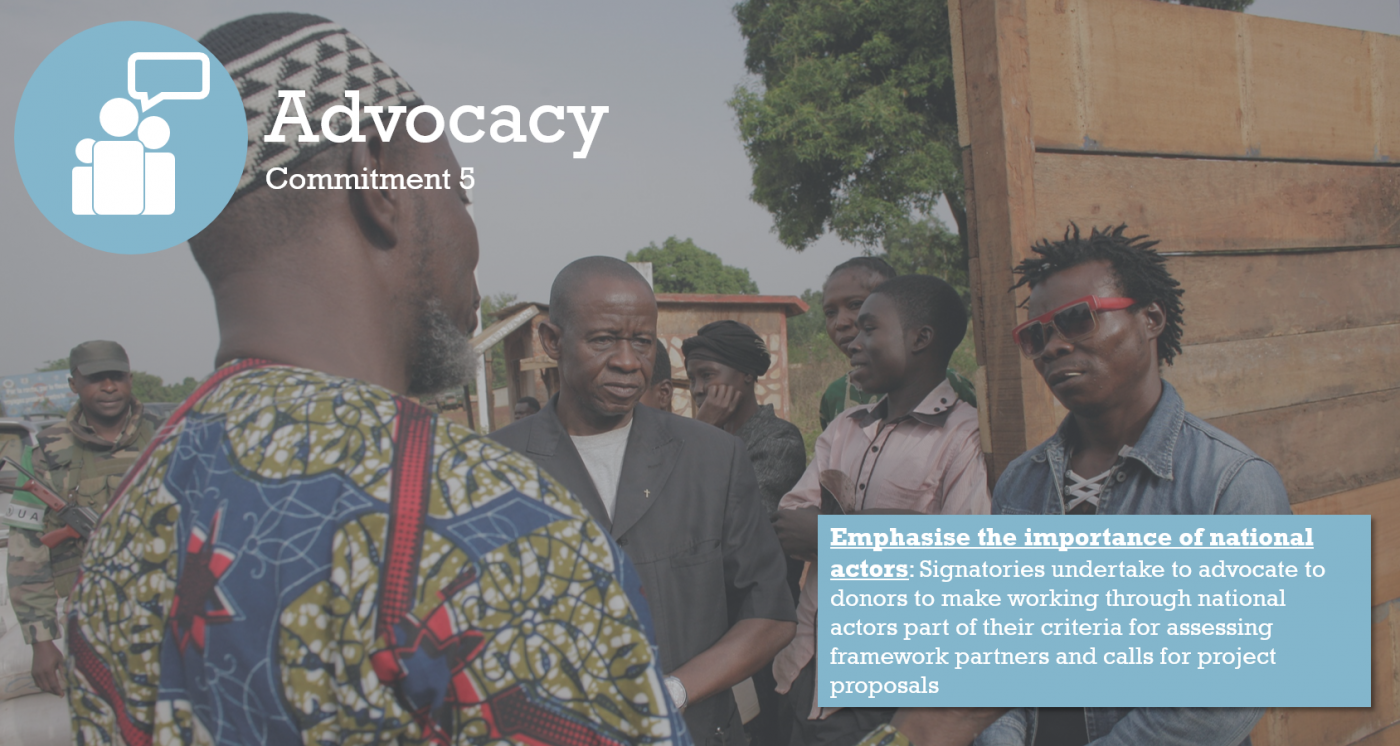Heatwaves, floods, and droughts have left people displaced, properties and infrastructures destroyed; food insecurity, hunger, malnutrition, and even death have pushed the humanitarian disaster to new heights. It is estimated that 1.6 billion people will be exposed to heat waves by 2050, which means an 800% rise. Likewise, there will be more intense and frequent cyclones and new regions will be exposed to extreme sea level events, threatening the life and livestock of local communities. The climate crisis is not a distant threat it is a reality that humanitarians are facing now. It is clear, climate disasters point to the fact that we can no longer wait but must ACT NOW. A MAYDAY! MAYDAY! call for urgent climate action. We need to engage locally–led solutions to the climate crisis to slow down and mitigate the climate crisis to protect the earth that we call home.
The Charter for Change (C4C) was launched at the World Humanitarian Summit in 2016 as a coalition of international NGOs and national NGOs jointly committed to pressing for more deliberate action to implement wider global commitments on localization: a process of recognizing, respecting, and strengthening leadership and decision-making by national and sub-national actors including governments, NGOs, and affected populations at community, sub-national and national levels. The local level is where most adaptation actions are now, and will, in the future, take place. The coalition is joined by 39 international NGOs (INGO Signatories) and 500+ local, national and international NGO (LNNGO Endorsers) as well as networks from 56 countries – who are playing leadership roles in both global and national efforts on climate change and the environment.
Learning was shared at the C4C Annual Meeting and challenges were discussed related to the Climate and Environment Charter for Humanitarian Organizations and the Eight Principles for Locally-Led Adaptation. C4C members emphasized the need for local and national NGOs to access funding from humanitarian, climate, and development funding instruments to ensure locally led adaptation actions through a bottom-up approach. The relevance of the eight commitments in the C4C Charter for better partnerships between INGOs and national NGOs for climate and environment programming was affirmed. The C4C has invested in a collective effort to support C4C country-level working groups and/or wider national NGO forums, networks, and platforms at the country level. C4C is pleased to see that locally-led climate action is a key priority for CoP27.
Hence the recommendations below reflect the views and voices of both C4C signatories and endorsers highlighting some practical ways forward for CoP27 in accelerating climate action:
1. Create an incisive platform where humanitarian actors, especially local representatives, can engage and connect with locally-led climate action at community levels.
2. Increase flexible, multiyear, and pre-arranged climate financing accessible for locally-led action to local organizations and communities affected by crisis.
3. Strengthen monitoring and response mechanisms to ensure commitments made by governments and the private sector are effectively implemented.


Thanks. Great recommendations. Climate financing is critical
LikeLike
This a good initiative. C4C has brought together small organizations so that their voices can be amplified
LikeLike
Great recommendations, climate justice has to be treated as an emergency and a call for quick response.
LikeLike